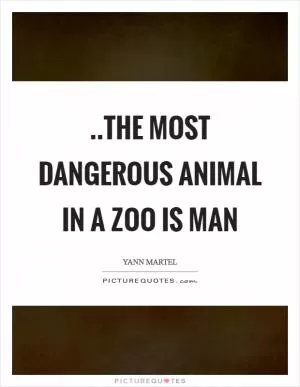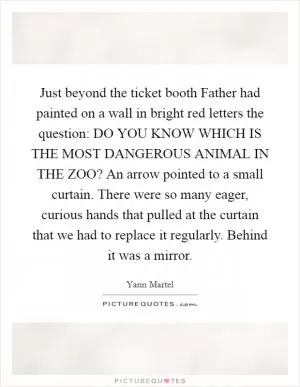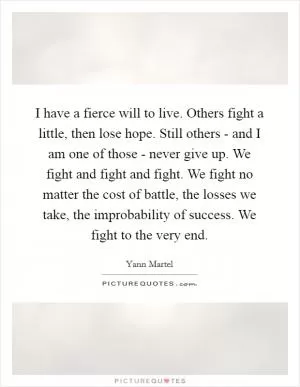Words are cold, muddy toads trying to understand sprites dancing in a field - but they're all we have
Words are cold, muddy toads trying to understand sprites dancing in a field - but they're all we have
Yann Martel, the acclaimed author of "Life of Pi," is no stranger to the power of words. His ability to craft intricate and thought-provoking narratives has captivated readers around the world. However, even Martel would likely agree that words can sometimes fall short in capturing the full depth and complexity of human experience.The phrase "Words are cold, muddy toads trying to understand sprites dancing in a field - but they're all we have" perfectly encapsulates the limitations of language when it comes to expressing the ineffable. Martel's writing often delves into the realm of the fantastical and the surreal, where the boundaries between reality and imagination blur. In these instances, words can feel inadequate, like clumsy creatures struggling to convey the beauty and wonder of the world around us.
Martel's work often explores themes of faith, belief, and the search for meaning in a seemingly chaotic universe. In "Life of Pi," the protagonist, Pi, finds himself adrift at sea with only a Bengal tiger for company. As he navigates the treacherous waters of the Pacific Ocean, Pi grapples with questions of identity, survival, and the nature of truth. Throughout the novel, Martel uses language to evoke a sense of wonder and awe, but also acknowledges its limitations in capturing the full scope of Pi's journey.












 Friendship Quotes
Friendship Quotes Love Quotes
Love Quotes Life Quotes
Life Quotes Funny Quotes
Funny Quotes Motivational Quotes
Motivational Quotes Inspirational Quotes
Inspirational Quotes